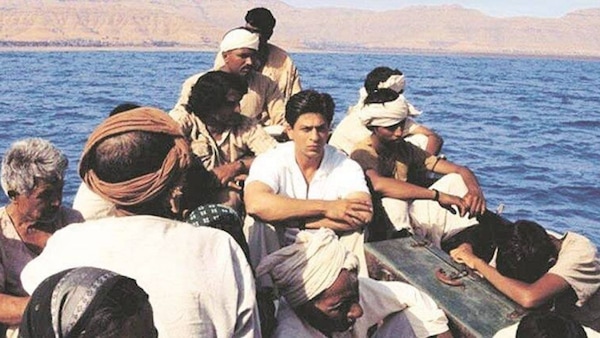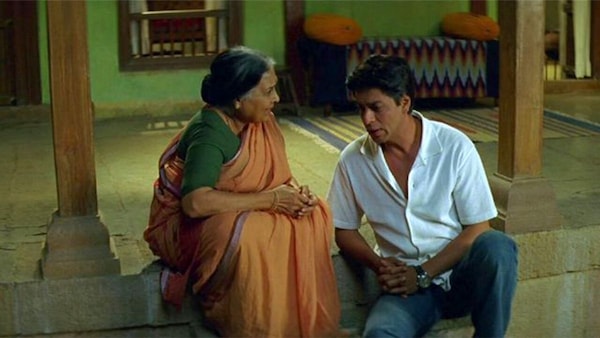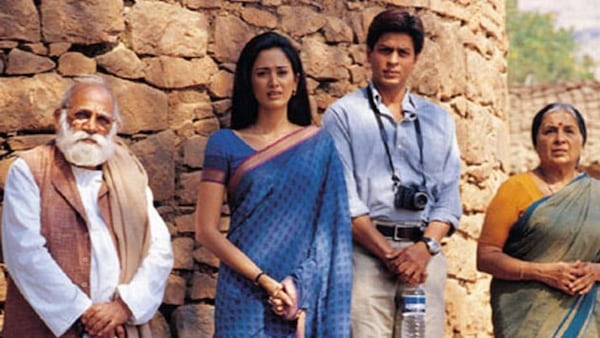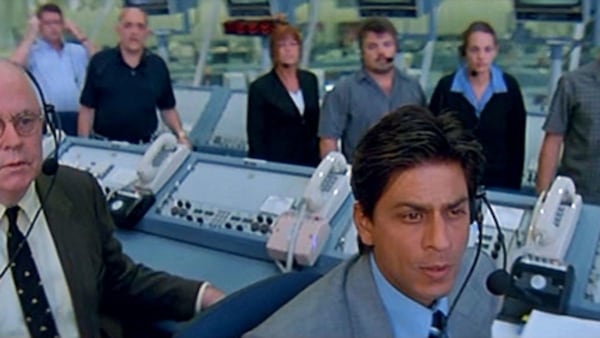Swades turns 17: Shah Rukh Khan, Ashutosh Gowariker’s nuanced narrative resisted bowdlerisation of the homeland
Revisiting Ashutosh Gowariker’s Swades: We The People, and what it means to belong.

Last Updated: 12.41 PM, Dec 22, 2021
The comfort and the familiarity of home assumed an entirely different meaning for a generation of youths working in alien cities in the pandemic-ravaged era. The privileged sought refuge by returning to their hometowns, others longingly rued for the day they could be reunited with their loved ones. Swades: We The People, written, produced and directed by Ashutosh Gowariker, is a film that celebrates homecoming.
Released in 2004, Swades follows Mohan Bhargava (Shah Rukh Khan), a NASA project manager who decides on the death anniversary of his parents to travel back to India from the US to reconnect with his childhood caretaker Kaveri Amma (Kishori Ballal). But unlike the aspirational mainstream Hindi films of the decade, made to cater to the growing NRI market, Swades turned its lens towards India. Mohan, who appears to have grown up at an urban centre in India before emigrating to the US, is confronted with a world very different from his own when he heads to Kaveri Amma’s village.

Gowariker deftly establishes the dichotomy between the concepts of swades and pardes without slipping into chest-thumping nationalism or didacticism. Gowariker’s version of rural India was not bowdlerised to appeal to the South Asian Diasporic Community. Hence, Mohan’s reverse migration is not motivated by a desire to return to the utopian motherland. The film recognises prevalent social evils like casteism, child labour and lack of education and the glaring economic disparities between the haves and the have-nots, without adulterating the cinematic experience of watching a global superstar cast his charm over his audience.

The story of Swades is inspired by Rajni Bakshi’s 1998 book on Mahatma Gandhi, Bapu Kuti (1998). Incidentally, the name of the protagonist is also Mohan, derived from Gandhi’s name, Mohandas. Thus, Mohan becomes the symbolic bapu, a revolutionary servant leader, who leaves behind a secure life in order to contribute to his homeland’s socio-economic development. It is as much a spiritual journey as it is a physical one, as Mohan finds a sense of self and purpose in serving his people.
Mohan’s self-discovery is enabled by his foster mother figure, Kaveri Amma and partner, Gita. After the death of his parents, Kaveri Amma assumes the role of the only parent figure in Mohan’s life. The tradition of nurturing elderly parents is intrinsic to India. So Mohan is initially driven by the guilt of not being able to be the provider for Kaveri Amma. He is the quintessential rescuer figure motivated by first-world guilt. But Kaveri Amma deftly refuses Mohan’s offer. She thus becomes a metaphor for the motherland, which refuses to be supplanted in a foreign land. The filmmaker indicates that the essence of India, however rid with its own share of issues, cannot be experienced without physically being present in the country.

Despite the film’s commercial success resting squarely on Shah Rukh Khan’s pan-Indian appeal, Gowariker’s female protagonists are as critical to the narrative as the male protagonist. Gita (a brilliant Gayatri Joshi in her debut role in a feature film), born and bred in India and acquainted with the social realities of her village, is a school teacher. She works tirelessly to educate the children of the. With Gita and Kaveri Amma, Gowariker addressed the accusation against Bollywood films relegating their female characters to the sidelines. Here was a woman who was trying to bridge the gap between the haves and the have-nots through education, and challenging Mohan’s entitled, armchair notions of governmental failure.
Swades never assumed the status of a cultural touchstone as Gowariker’s earlier nationalistic manifesto Lagaan (2001). But it gently stirred a patriotic fervour and a sense of belonging in a fleeting world. In the era of the pandemic, isn’t that all we want? To belong?
Watch Swades here
